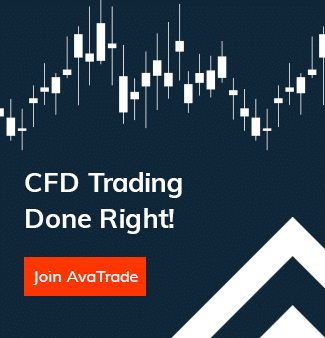
Silver CFD Trading
Silver is one of the rarest metals on earth, and is considered a high-demand commodity by many traders. The silver trading symbol Is YI.
While silver is less rare than gold its role affects the currency markets significantly and works mostly in tandem with gold market prices. As it is one of the most versatile of metals, it can be used as both an industrial metal and a hard asset, and plays a double role in the commodities market.
Advantages of Trading Silver
- Trade Silver and other metals with competitive spreads
- Comfortable leverage on silver
- Take your pick between MT4 or MT5
- Express any market view and employ different trading strategies
- Enjoy top quality 24/5 live technical support
- Trade on the move from your mobile phone, tablet or web trading
- Enjoy trading forex and commodities from one trading platform
Start trading the dynamic silver markets with Friedberg Direct, and enjoy competitive spreads and leverage as well as the benefits of trading with a regulated, Canadian broker!
The Silver Market
Silver is traded in 3 main places around the globe: the New York Mercantile Exchange (NYME), the London Metal Exchange (LME) and the Chicago Board of Trade (CBOT). Silver trading hours begin at 00:00 GMT until 21:00 GMT, and from 22:00 GMT to 24:00 GMT – 23 hours around the globe
What Affects Silver Price
The silver trading price is affected by many factors. Here are a few:
A Natural Resource
As a natural resource, silver has to be mined from the ground. As such its supply is often inconsistent with demand, leading to fluctuations in its price. In recent years, Mexico has become the world’s main silver supplier, with some 5,000 metric tons produced in 2014. The USA is the world’s leading consumer of silver with about 20%, and India and China are in second place with approximately 18%.
Industrial Demand
Silver has several industrial uses; therefore economic growth can affect silver prices far more than it affects gold prices. Due to silver’s physical strength, malleability and conductivity properties, it is used in almost any industrial field, hence increasing its industrial demand.
Use of silver is spread over different areas: more than 50% of mined silver goes to the movie industry, used to create sensitive materials reflecting light. Other uses include the military – about 500 ounces of silver are used in every Tomahawk missile. Only 3% goes to the jewellery industry. Demand from any of these sectors leads to a change in its price.
Silver CFD Trading
Like many other assets, silver does not have to be physically bought or sold. Instead its price can be traded on using Contracts For Difference (CFD). When trading silver CFDs, the trader doesn’t own the instrument but can benefit from the changes in its value. The contract is between the trader and the broker, and the prices are derived from the real asset’s price.
As silver is not a very common commodity, not every trader can gain easy access to it, especially when the minimum amount for purchase is 100 units. Trading the contract for difference rather than the product itself allows every trader to benefit from this commodity.
When buying or selling real silver, people have to invest a lot of their own capital funds. However, when trading CFDs one can employ leverage, which decreases significantly the amount needed to invest.
If, for some reason, a certain commodity’s price drops, people who own it are left with a physical product with a low value. However, when having a CFD position, all the trader needs to do is close it, thus minimising the risk he takes. Don’t forget to check out the CFD Rollover dates to know when the current contracts expire.
Silver Trading With Friedberg Direct
Trading silver is no different than any other instrument; however, you should look for a broker with a specific regulatory regime, which guarantees your funds are safe and your account is well kept under heavy encryption.
Adding to this also education materials on the highest level, and together they indicate a broker who will allow you to trade with peace of mind.
Start trading the dynamic silver markets with Friedberg Direct, and enjoy competitive spreads and leverage as well as the benefits of trading with a regulated Canadian broker!
Silver Trading FAQs
- Is it worth it to trade silver?
Many people must think so, because after gold, silver is the most traded of the precious metals. And there are many ways to trade silver, from futures and options, to spot trades and CFDs. Some people even use the physical metal, although this is far more suited to long-term investing. Trading silver has become increasingly popular thanks to the lower price of silver in comparison with gold, and also because of the greater moves typically seen on a daily basis in the silver price. Those looking to day trade precious metals can do far better with silver as they can take advantage of the greater volatility.
- Is silver the best precious metal to trade?
Silver has an advantage over other precious metals in being priced much lower. Many traders also prefer it, because it tends to have greater price swings and stronger trends. The increasing use of silver for industrial applications also helps support the price of this precious metal. Obviously, the best precious metal for any trader is the one they understand the best, but for those just getting started in precious metals trading, silver could be an excellent choice.
- What is the best strategy for trading silver?
One very successful trading strategy for silver is to take advantage of the Gold-Silver ratio. The Gold-Silver Ratio is a measure of how many ounces of silver it takes to buy an ounce of gold. It establishes the relative value between the two metals and trading strategies based on it can bring opportunity even if the price of both gold and silver rise or fall at the same time. Typically traders look for the ratio to become extremely high, which is a signal to buy silver, or extremely low, which is the signal to sell silver.
These FAQs, comments/analysis do not take into consideration your individual personal circumstances and trading objectives. Therefore, they should not be considered as a personal recommendation or investment advice. They are intended for educational purposes only. Past performance is not indicative of future results. There is no guarantee that the contents or instructions will result in profits or not result in losses.







